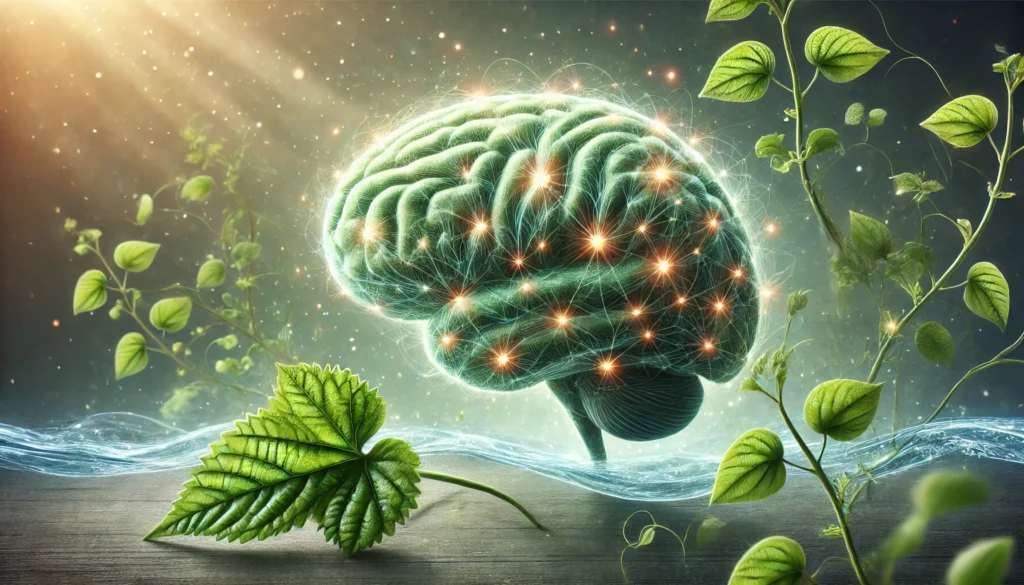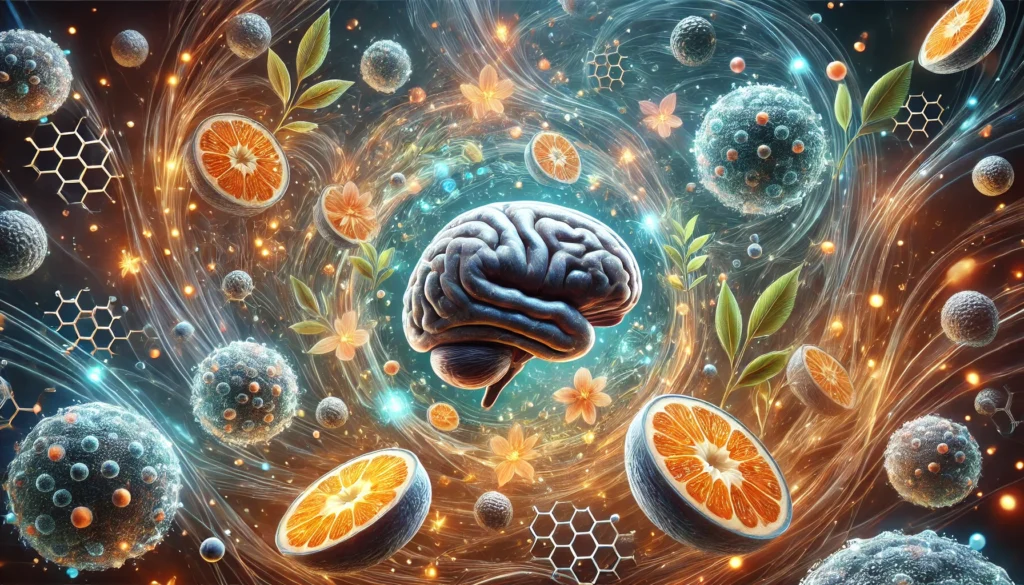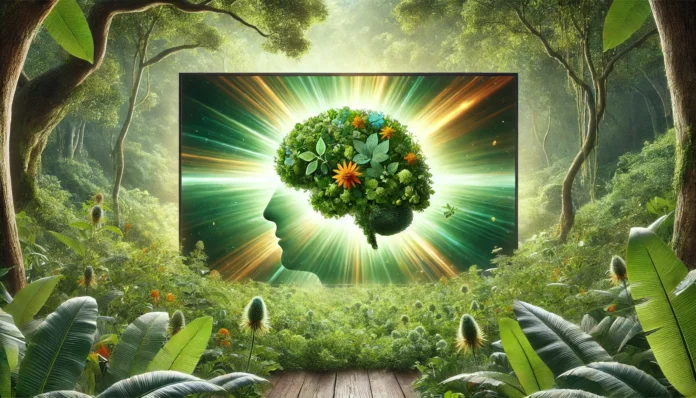The resurgence of herbal medicine in modern health discourse is not simply a nostalgic nod to tradition but rather a scientifically informed reawakening to the potent bioactive compounds found in ancient plants. Two herbs at the forefront of this revival are ashwagandha (Withania somnifera) and bacopa monnieri, revered in Ayurvedic medicine for centuries and now scrutinized by contemporary science for their cognitive and anti-aging potential. The combination of ashwagandha with bacopa benefits brain health and longevity in ways that extend far beyond what either herb achieves alone. Through synergistic effects on neurochemistry, stress regulation, and neuroprotection, these two adaptogenic powerhouses are gaining attention as a science-backed, holistic approach to preserving and enhancing cognitive function throughout the lifespan.
You may also like: Best Rated Nootropics for Brain Health: Top Supplements to Enhance Focus, Memory, and Longevity
Understanding Ashwagandha: The Adaptogen for Stress and Cognitive Resilience
Ashwagandha, often referred to as Indian ginseng, is an adaptogenic herb that helps the body adapt to stress and restore balance across numerous physiological systems. Its primary bioactive compounds—called withanolides—exert neuroprotective, anti-inflammatory, and anxiolytic effects. In the context of brain health, ashwagandha has been shown to modulate the hypothalamic-pituitary-adrenal (HPA) axis, effectively reducing cortisol levels and dampening the physiological cascade of chronic stress. This hormonal recalibration has profound implications for mental clarity, mood stability, and long-term brain resilience.
What makes ashwagandha particularly compelling is its ability to enhance cognitive performance while reducing anxiety symptoms. Multiple randomized controlled trials have demonstrated that supplementation with ashwagandha can significantly improve memory, attention, and executive function in both healthy individuals and those with mild cognitive impairment. Its antioxidant properties also help combat oxidative stress, a major driver of neuronal aging. These mechanisms illustrate why ashwagandha is often considered foundational in integrative protocols aimed at promoting cognitive longevity.
Exploring Bacopa Monnieri: The Nootropic Herb for Memory and Synaptic Plasticity
While ashwagandha excels at stress mitigation and overall neurological support, bacopa monnieri targets the brain’s intricate memory and learning systems. This creeping herb, native to marshy areas of India and Southeast Asia, is classified as a nootropic—meaning it supports cognitive functions such as memory formation, learning speed, and mental processing. Its active constituents, known as bacosides, directly enhance synaptic communication and promote dendritic branching, thereby supporting the physical infrastructure of memory.
Bacopa’s impact on the cholinergic system—a neurotransmitter network involved in learning and attention—is particularly well documented. Studies show that bacopa supplementation increases acetylcholine synthesis while inhibiting its breakdown, leading to more efficient neurotransmission. This contributes to improved working memory and sustained attention, especially in academic or high-stress environments. Moreover, bacopa demonstrates anxiolytic properties by modulating serotonin and dopamine pathways, reinforcing its compatibility with ashwagandha in a dual-herb strategy for cognitive and emotional balance.
Ashwagandha with Bacopa: Synergistic Mechanisms of Cognitive Enhancement
When taken together, ashwagandha and bacopa create a multifaceted framework for cognitive enhancement that addresses both the causes and symptoms of cognitive decline. Ashwagandha reduces stress-induced neurotoxicity and protects brain cells from inflammation and cortisol-induced damage. Bacopa, on the other hand, strengthens the brain’s synaptic infrastructure and enhances neurotransmitter function. The combined effect is greater than the sum of its parts.
In clinical and preclinical studies examining herbal combinations, ashwagandha with bacopa benefits have been consistently associated with improved outcomes in attention, memory, and mood. The two herbs act on complementary systems: ashwagandha stabilizes the internal environment by modulating the HPA axis, while bacopa enhances external cognitive performance by supporting neuroplasticity and neurotransmission. This integrative action offers a sustainable, side-effect-minimized strategy for improving brain function across different age groups.
Scientific Evidence Supporting Liquid Ashwagandha with Bacopa Benefits
Among the various forms of these herbal supplements, liquid formulations have garnered interest for their superior bioavailability. Liquid ashwagandha with bacopa benefits may be more rapidly and efficiently absorbed, allowing for faster onset of action and greater efficacy. Research into liquid herbal extracts suggests that they can bypass some of the digestive limitations posed by capsules or tablets, delivering higher concentrations of active ingredients directly into the bloodstream.
Although direct head-to-head comparisons between liquid and capsule forms of ashwagandha with bacopa are limited, pharmacokinetic studies indicate that alcohol- or glycerin-based tinctures facilitate greater systemic uptake of withanolides and bacosides. This means that individuals seeking rapid stress relief or cognitive enhancement may benefit more from a high-quality liquid formulation. Furthermore, the customizable dosing of liquid supplements allows for more precise titration based on individual tolerance and goals, a particularly useful feature for those using these herbs for long-term cognitive support.

Enhancing Brain Health Through Neurogenesis and Synaptic Integrity
The ability of ashwagandha and bacopa to influence neurogenesis—the birth of new neurons—adds a compelling layer to their brain health benefits. Ashwagandha has been shown to stimulate neurogenesis in the hippocampus, a brain region critical for memory formation and emotional regulation. This regenerative potential is crucial in the context of aging, where the rate of neuronal loss often outpaces the brain’s ability to replenish cells.
Bacopa complements this regenerative activity by enhancing synaptic integrity, which ensures that newly formed neurons are effectively integrated into the brain’s neural networks. The promotion of dendritic growth and increased synaptic density are hallmarks of a brain that is not just resisting decline but actively evolving to meet cognitive demands. These mechanisms are especially relevant for individuals experiencing age-related cognitive decline or those recovering from neurological injury, as they offer a pathway to functional restoration.
Anti-Aging and Longevity Effects: Beyond the Brain
While much of the discussion around ashwagandha with bacopa benefits centers on brain health, these herbs also exert systemic effects that contribute to overall longevity. Ashwagandha, for instance, supports mitochondrial health and reduces systemic inflammation—two processes intimately tied to the aging trajectory. By optimizing mitochondrial function, ashwagandha helps maintain cellular energy levels, which are essential for tissue repair, immune function, and hormonal balance.
Bacopa, with its potent antioxidant and anti-glycation properties, combats the cellular damage that accumulates with age. Glycation, the cross-linking of sugar molecules with proteins, is a major contributor to tissue stiffness and organ dysfunction over time. Bacopa’s ability to prevent glycation reactions may help preserve skin elasticity, vascular integrity, and joint mobility—factors that influence not just lifespan but healthspan. Together, these herbs offer a holistic anti-aging protocol that begins in the brain and radiates throughout the body.
Stress, Sleep, and Cognitive Resilience: A Triad of Benefits
The link between chronic stress, poor sleep, and cognitive decline is well established, and both ashwagandha and bacopa offer protective effects within this interconnected triad. Ashwagandha’s stress-reducing capabilities directly improve sleep quality by lowering nighttime cortisol and promoting relaxation. Bacopa, meanwhile, enhances slow-wave sleep and shortens sleep latency, likely due to its modulation of serotonin and GABA pathways.
By improving sleep architecture, this herbal combination supports the brain’s nightly repair processes, including memory consolidation and synaptic pruning. In individuals who experience sleep disruptions due to anxiety or overstimulation, liquid ashwagandha with bacopa benefits are especially notable. The calming effects of both herbs, when delivered in a fast-absorbing liquid form, can ease the transition into restful sleep while preparing the brain for optimized performance the next day. This cyclical enhancement of rest and cognition forms the foundation of long-term brain resilience.
Neuroprotection in Neurodegenerative Diseases: Hope Through Herbal Synergy
One of the most promising areas of research into ashwagandha with bacopa benefits lies in their potential to prevent or mitigate neurodegenerative diseases such as Alzheimer’s and Parkinson’s. Ashwagandha’s neuroprotective effects stem from its ability to scavenge free radicals, inhibit beta-amyloid aggregation, and upregulate brain-derived neurotrophic factor (BDNF). These actions are critical in slowing the progression of Alzheimer’s disease and preserving cognitive function.
Bacopa also inhibits beta-amyloid formation while supporting cholinergic function, making it a complementary agent in dementia prevention protocols. Together, these herbs offer a dual-layered defense: one that safeguards existing neurons and another that encourages the formation of new ones. Clinical trials are underway to determine the long-term efficacy of such herbal interventions, but early results are promising and suggest that a well-formulated combination may serve as a valuable adjunct to conventional therapies.
Optimizing Use: Dosage, Timing, and Formulation Considerations
To harness the full potential of ashwagandha with bacopa benefits, careful consideration must be given to dosage, timing, and formulation. Most clinical studies use standardized extracts containing specific concentrations of withanolides and bacosides, ensuring consistency and potency. For general cognitive enhancement, doses typically range from 300 to 600 mg of ashwagandha extract and 300 to 450 mg of bacopa extract daily.
Liquid formulations allow for individualized dosing and may be preferable for those with digestive sensitivities or absorption issues. Taking the herbs in the morning can enhance daytime focus and energy, while evening dosing may promote restful sleep and overnight neurorepair. As with any supplement, consistency is key—long-term, daily use yields the most pronounced cognitive and anti-aging effects. Consulting a healthcare provider familiar with integrative medicine can help tailor an optimal regimen based on individual needs and health goals.

Frequently Asked Questions: Ashwagandha with Bacopa Benefits for Brain Health and Longevity
1. Can ashwagandha with bacopa support cognitive recovery after burnout or executive fatigue?
Yes, when used consistently and with appropriate dosing, ashwagandha with bacopa benefits professionals recovering from cognitive burnout or executive fatigue. While the primary article focused on general cognitive support, this combination may specifically help recalibrate stress hormones like cortisol that are often dysregulated after prolonged mental exertion. Bacopa’s ability to enhance cholinergic function can restore cognitive efficiency, which often declines during periods of decision fatigue. Ashwagandha, by modulating the HPA axis, supports a return to baseline energy levels and emotional stability. The duo may be particularly valuable for high-stakes professionals who need to regain sustained attention, strategic thinking, and psychological resilience.
2. How does liquid ashwagandha with bacopa compare to capsules for individuals with gastrointestinal sensitivities?
For individuals with sensitive digestion or malabsorption issues, liquid ashwagandha with bacopa benefits may be superior due to enhanced bioavailability and minimal gastric irritation. Liquid tinctures bypass some of the challenges posed by delayed gastric emptying or enzyme insufficiency, delivering active compounds more directly into circulation. This can be particularly useful for older adults, individuals with IBS, or those on proton pump inhibitors, whose absorption of herbal actives may be compromised in capsule form. Additionally, the dosing flexibility of liquid forms allows for micro-adjustments that aren’t always feasible with fixed-dose capsules. This means users can slowly titrate to their ideal dose without overwhelming the gastrointestinal tract.
3. Are there potential interactions between ashwagandha with bacopa and prescription medications for mental health?
Yes, while the herbal synergy of ashwagandha with bacopa benefits many aspects of mood and cognition, individuals on prescription medications—particularly antidepressants, anxiolytics, or stimulants—should consult a qualified healthcare provider before combining therapies. Ashwagandha may amplify the sedative effects of certain medications like benzodiazepines or SSRIs, while bacopa’s modulation of serotonin and dopamine could potentially interact with mood stabilizers. This doesn’t necessarily mean the herbs are contraindicated, but rather that careful monitoring and professional oversight are warranted. In some cases, healthcare practitioners may recommend using lower herbal doses or timing the herbs to avoid peak pharmaceutical activity. Responsible integration can maximize benefits while minimizing risks.
4. Can ashwagandha with bacopa improve cognitive flexibility in aging populations?
Emerging research suggests that ashwagandha with bacopa benefits extend to cognitive flexibility—an executive function that declines with age and contributes to mental rigidity or slower adaptation to new information. Bacopa supports this domain by enhancing synaptic plasticity and increasing dendritic complexity, facilitating smoother transitions between tasks. Ashwagandha’s role in reducing inflammation and oxidative stress in the prefrontal cortex may also preserve the structural integrity required for cognitive agility. Together, these effects may improve how older adults adjust to new routines, technologies, or environments. Importantly, maintaining cognitive flexibility is linked not just to daily functioning, but also to reduced risk of neurodegenerative disease.
5. What are the long-term implications of using liquid ashwagandha with bacopa daily?
Long-term use of liquid ashwagandha with bacopa benefits neuroprotection, emotional balance, and possibly even epigenetic modulation of stress-related genes. Some studies suggest that chronic supplementation with adaptogens and nootropics can upregulate brain-derived neurotrophic factor (BDNF) and influence methylation patterns associated with resilience. In practical terms, users may find that their stress response becomes more efficient, their memory more stable, and their mood more resilient even during life transitions or periods of sleep disruption. However, long-term use should be periodically reassessed with guidance from an integrative health professional to ensure optimal dosing and avoid unnecessary habituation. Personalization is key in maximizing long-term outcomes.
6. Do ashwagandha with bacopa benefits extend to creative cognition or artistic performance?
Yes, creative professionals may find that ashwagandha with bacopa benefits extend beyond structured thinking into imaginative and divergent cognitive domains. Bacopa’s influence on cholinergic and serotonergic systems may enhance lateral thinking and idea generation, while ashwagandha reduces self-critical rumination and performance anxiety. Together, they may help unlock a flow state more consistently, particularly in artists, musicians, or writers who rely on both emotional openness and executive function. Anecdotal reports suggest enhanced verbal fluency and deeper engagement with creative tasks. While more targeted research is needed in this niche area, early findings and experiential feedback support their use in performance-oriented creativity.
7. How do these herbs affect individuals with attention regulation issues like adult ADHD?
Ashwagandha with bacopa benefits may be particularly promising for adults with attention dysregulation, such as those managing ADHD symptoms. Bacopa enhances sustained attention and working memory, areas typically impaired in ADHD, through its effect on acetylcholine availability and receptor sensitivity. Ashwagandha reduces hyperarousal and stress-induced distraction by modulating cortisol and supporting GABAergic tone. Importantly, the combination may enhance mental endurance without overstimulating the nervous system, unlike many conventional stimulant medications. Some individuals may use these herbs as adjunctive therapies under professional supervision, finding that they support focus and task persistence in a more balanced and sustainable way.
8. Are there specific times of day when liquid ashwagandha with bacopa is most effective?
Yes, timing can influence how liquid ashwagandha with bacopa benefits manifest throughout the day. Taking the blend in the morning may enhance alertness, motivation, and stress resilience during work hours, while evening doses may promote deeper relaxation and restorative sleep. Some users split their dosage to target both daytime cognition and nighttime recovery. Liquid formulations are absorbed rapidly, so effects may begin within 30 to 60 minutes depending on the individual. For those with irregular schedules or shift work, timing can be adjusted based on when cognitive and emotional support is most needed.
9. How do cultural traditions influence the modern use of ashwagandha and bacopa together?
Traditional Ayurvedic medicine has long regarded both herbs as complementary, but the modern understanding of ashwagandha with bacopa benefits is also shaped by Western scientific validation and consumer needs. While Ayurveda uses them within a broader constitutional framework (e.g., Vata or Pitta balancing), contemporary formulations focus on standardized extracts and targeted neurochemical outcomes. This cultural convergence has allowed for the global expansion of adaptogenic protocols that meet both ancestral wisdom and evidence-based standards. Interestingly, some Ayurvedic practitioners also emphasize energetic harmony between the herbs, suggesting that bacopa cools and soothes the mind while ashwagandha grounds and energizes. These insights add a dimension to their use that transcends biochemistry alone.
10. What future developments are expected in research on ashwagandha with bacopa benefits?
Future research on ashwagandha with bacopa benefits is likely to focus on precision applications, including genetic polymorphisms that influence individual responses to these herbs. Studies may explore how variations in genes like COMT or BDNF modulate cognitive outcomes, enabling personalized nootropic formulations. Additionally, there is growing interest in combining these herbs with emerging technologies like transcranial stimulation or digital cognitive training to assess synergistic effects. Liquid ashwagandha with bacopa benefits may also be refined through nanotechnology, enhancing bioavailability even further through microencapsulation or liposomal delivery. These advancements will deepen our understanding of how these ancient herbs can serve modern neurological and psychological health.

Conclusion: Unlocking the Full Potential of Ashwagandha with Bacopa for Brain Health and Longevity
In the ever-expanding field of cognitive enhancement and longevity science, the combination of ashwagandha and bacopa stands out as a uniquely effective, natural strategy rooted in both ancient wisdom and modern evidence. This herbal duo offers a holistic blueprint for optimizing brain function, enhancing emotional balance, and extending the healthspan of the aging brain. The science behind ashwagandha with bacopa benefits continues to evolve, but current research underscores their potential as powerful allies in the pursuit of cognitive clarity and lifelong vitality.
When taken in a liquid form, the benefits of these herbs may be even more pronounced. Liquid ashwagandha with bacopa benefits include faster absorption, improved bioavailability, and more flexible dosing—all of which contribute to their effectiveness in real-world applications. As awareness of these herbal adaptogens grows, so too does the opportunity to integrate them into comprehensive wellness protocols aimed at preserving mental sharpness, emotional resilience, and long-term neurological health. In a world increasingly burdened by cognitive decline and chronic stress, ashwagandha and bacopa offer a scientifically validated, accessible, and profoundly restorative solution.
adaptogenic herbs for brain health, natural nootropics, herbal remedies for stress, cognitive function support, anti-aging supplements, neuroprotective herbs, Ayurvedic brain boosters, herbal memory enhancers, botanical stress relief, supplements for mental clarity, focus and concentration herbs, brain longevity strategies, natural mood stabilizers, herbal neurogenesis support, brain-enhancing adaptogens, plant-based cognitive enhancers, stress and sleep support herbs, mind-body wellness herbs, traditional Ayurvedic supplements, herbs for executive function
Further Reading:
Ashwagandha: Multiple Health Benefits
Bacopa Monnieri: A Deep Dive into 10 Brain and Body Boosting Benefits
Disclaimer
The information contained in this article is provided for general informational purposes only and is not intended to serve as medical, legal, or professional advice. While Health11News strives to present accurate, up-to-date, and reliable content, no warranty or guarantee, expressed or implied, is made regarding the completeness, accuracy, or adequacy of the information provided. Readers are strongly advised to seek the guidance of a qualified healthcare provider or other relevant professionals before acting on any information contained in this article. Health11News, its authors, editors, and contributors expressly disclaim any liability for any damages, losses, or consequences arising directly or indirectly from the use, interpretation, or reliance on any information presented herein. The views and opinions expressed in this article are those of the author(s) and do not necessarily reflect the official policies or positions of Health11News


